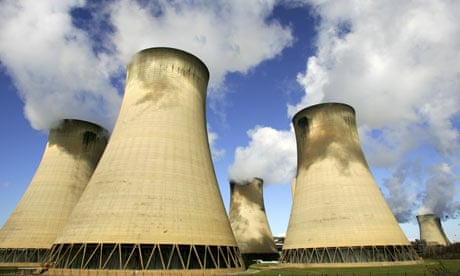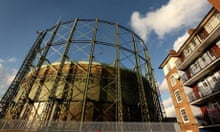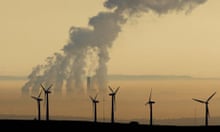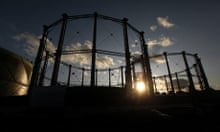Energy companies have been accused of profiteering by failing to pass on steep falls in world gas prices to consumers at a time when bitterly cold weather means soaring bills for tens of millions of customers.
Consumer watchdog Consumer Focus is calling for a Competition Commission investigation to address "anomalies" in the energy sector that are likely to see British Gas's residential business report a 40% rise in profits to £540m for 2009.
The company has benefited from the slump in wholesale gas prices since mid-2008, down by about 35%, but price cuts for consumers have been at a much lower level. For gas customers, the firm has cut prices by just 10% since last February.
Consumer Focus says that all the big suppliers have failed to fully pass on wholesale price reductions; British Gas is by no means the worst culprit, it adds.
Liberal Democrat Treasury spokesman Vince Cable agrees there is a case for a Competition Commission inquiry. "Just six big companies control the lion's share of the market... making it difficult for rivals to break into the sector and providing an environment where it was relatively easy for prices to fluctuate within a narrow band," he said.
And power generation companies could spark more controversy because they have taken advantage of the recent spike in wholesale natural gas prices caused by the cold weather to sell energy to traders. Some insiders suggest these activities contributed to the restriction of gas supplies that affected many major industrial users last week.
Regulator Ofgem is due shortly to publish a report on the profit margins enjoyed by the energy majors as part of a monitoring programme that is designed to ensure wholesale and retail prices do not get too far out of kilter. Analysts say margins at the moment are at around 7%, the highest for several years.
Last week, prime minister Gordon Brown said energy companies should behave more responsibly. He said: "One of the continuous problems I have is trying to persuade the companies to pass on cuts in oil prices [which are closely linked to gas prices] so that the consumer is not hit when the price is going up and then not given any benefit at all when prices are coming down."
Robert Hammond of Consumer Focus said: "Wholesale and domestic electricity supplies now largely come from different arms of the same companies. This leaves the sector dominated by a small number of players who can self-supply their own electricity, with a lack of transparency over this relationship.
"The limited volume of trading, particularly in electricity, also restricts competition. A Competition Commission investigation is needed to inject genuine competition in these markets."
A British Gas spokesman said people did not realise that energy groups buy gas well in advance, sometimes 18 months ahead of time, and that the company was still tied into some relatively expensive contracts. Ofgem added that on average, 11% of bills are accounted for by charges that energy firms incur to meet new environmental standards. "It's complicated," said a spokesman. But Ann Robinson, director of consumer policy at price comparison website uSwitch, said: "The main problem is that we don't have transparency in the UK energy market. We don't know if firms buy one, two or five years in advance." It seems obvious to us that consumers are sold short and that something needs to be done about it."
But Ofgem has warned that higher bills in the future are almost inevitable as £200bn of new investment may be needed in the next few years if the private sector suppliers is are to deliver energy security. and meet climate change plans for Britain.
Consumers could face price rises of up to 60% in their gas and electricity bills in the next seven years as energy supplies become more volatile, the regulator admitted at the end of last year.
Its explosive report on future energy supplies said the biggest challenge was the country's growing reliance on a volatile global gas market as North Sea supplies dwindled and the need rose for variable power to compensate for intermittent sources such as wind.
Alistair Buchanan, Ofgem's chief executive said: "Our scenarios suggest that Britain faces a tough challenge in maintaining secure supplies whilst at the same time meeting its climate change targets."




